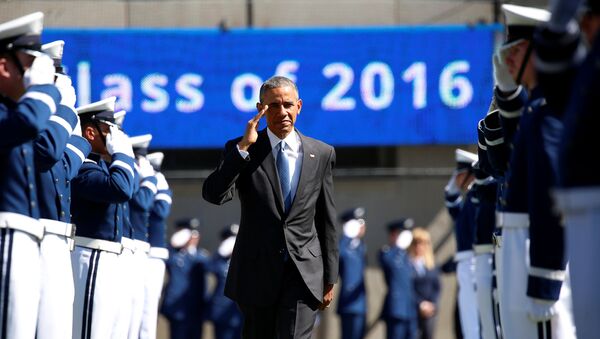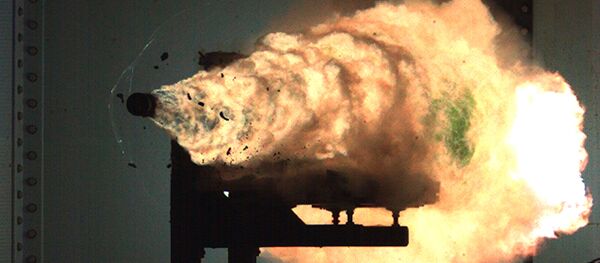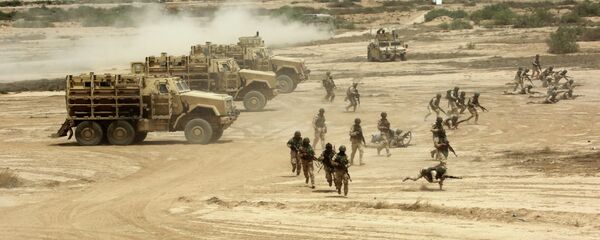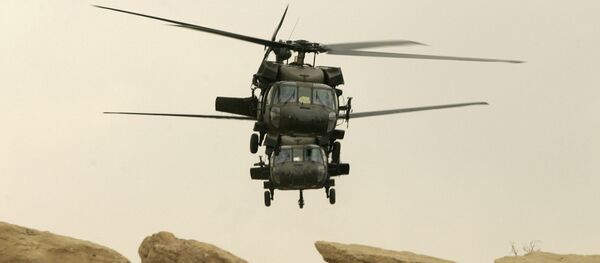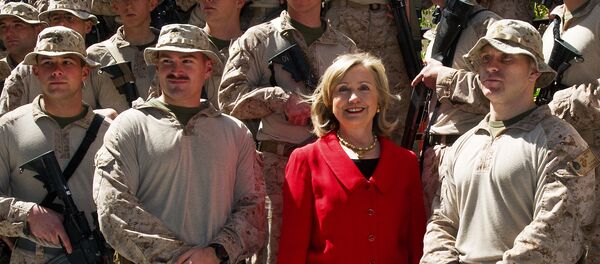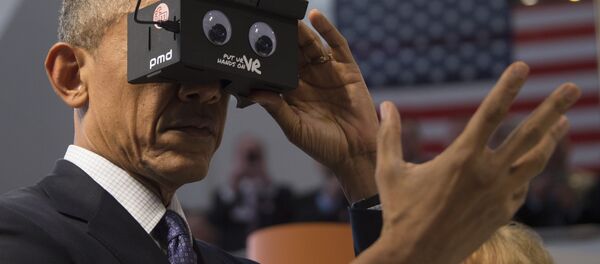In his analysis for Russia's Svobodnaya Pressa online newspaper, Polunin noted that this year's speech carried an unusually dovish character.
In his speech, Obama emphasized that the United States supports a political transition of power in Syria, and does not intend to send troops into the conflict. "If Iran and Russia want to spill their blood and treasure" supporting the Syrian government, "that is their choice," Obama said.
"As President of the United States, I've made a different choice…" he added. A political transition is the only solution, "and that takes diplomacy — - not American soldiers being dragged into the middle of another civil war in the Middle East. Our foreign policy has to be strong, but it also has to be smart."
In his 2014 speech before cadets at Military Academy at West Point in 2014, for instance, Obama proudly said that "America has rarely been stronger relative to the rest of the world" than it was at that moment.
"Regional aggression that goes unchecked — - whether in southern Ukraine or the South China Sea, or anywhere else in the world — - will ultimately impact our allies and could draw in our military. We can't ignore what happens beyond our boundaries," Obama emphasized.
At the same time, also in his 2014 speech, Obama made clear that America would not base its actions around the world on the opinion of the international community. "International opinion matters, but America should never ask permission to protect our people, our homeland, or our way of life," the president insisted.
But the real pinnacle of Obama's global aspirations, Polunin recalled, was his speech at the 2012 Air Force Academy commencement in Colorado Springs. It was in that speech, that Obama made his famous remark that "the United States has been, and will always be, the one indispensable nation in world affairs."
It's worth noting, Polunin pointed out, "that the speeches of American presidents before cadets of military academies are more than simply a time-honored tradition. The White House uses them for to make declarations of the country's foreign policy."
Moreover, the journalist suggested, "as is evident from Obama's speeches at such ceremonies that the level of pathos and militancy within them has steadily declined. If, two years ago, the president believed that the United States could use force to get the world to play by its rules, today the main message has boiled down to the idea that when the US sends combat troops to other countries, it's necessary to think about the possible consequences."
Pondering whether the change of tone in the president's speeches marked an indication of America's declining global geopolitical influence, Polunin turned to geopolitics experts Mikhail Alexandrov and Alexei Fenenko.
In early 2012, Alexandrov recalled, "Barack Obama presented to the public a Pentagon document entitled Sustaining US Global Leadership: Priorities for 21st Century Defense, which in its essence was a new military strategy up to the year 2020. In that document it was said that Washington must use all available resources, including the military, to preserve America's global leadership."
"Later," the analyst added, "in the US National Security Strategy adopted in February 2015, it was stated directly that "American leadership is a global force for good."
Finally, in May of this year, the president published an editorial in the Washington Post, calling on Congress to approve the Trans-Pacific Partnership. "In the editorial, Obama said that America, and not countries like China, which should define the basic rules of global trade."
"In other words, Alexandrov pointed out, "the ardor for leadership, the idea that everyone else must 'lie down' before the United States, has not left Obama."
The reality, the analyst suggested, "is that the essence of Obama's policy is to transfer the brunt of military operations overseas to local forces: to unofficial armed groups, to private military companies. This, first of all, would minimize official American involvement, thereby reducing any criticism of America's imperialist policy. Secondly, such an approach has allowed for a significant reduction in US military spending, which was a matter of principle to the White House."
America's 2015 budget deficit amounted to $108 billion, while the country's government debt will soon amount to $19 trillion, or 103% of GDP. "In this situation," Alexandrov noted, "the previous levels of spending on military operations are no longer feasible."
At the same time, Alexandrov explained, given that "the maintenance of global supremacy requires constant intervention in various conflicts, the US has selected a new, less expensive method of intervention – namely 'network-centric warfare'."
Moreover, US strategy today takes maximum advantage of the resources of allies. "This can be seen in the case of the war in Syria, where Turkey, Saudi Arabia and Qatar play the role supplying resources."
In this sense, Alexandrov emphasized, the perceived ambivalence in the president's speeches must take account of their purpose. "On the one hand, they loudly proclaim America's leadership; on the other, they are aimed at concealing the fact that the United States has been forced to curtail its military operations, and to rely more and more on strategies of indirect intervention."
"Neither is America attractive in terms of its ideology," Alexandrov suggested. "Many people around the world are now convinced that American declarations of the struggle for democracy translates to 'humanitarian bombing' and the support for openly neo-Nazi forces in countries like Ukraine."
In the military sphere too, the US is gradually weakening; "they have not been able to achieve a decisive military and technical superiority over Russia, a strategic parity of forces has been preserved."
Ultimately, according to Alexandrov, "the US's global influence presently rests largely on PR inertia. But its decline is taking place continuously, and it's only a matter a time before a qualitative leap is made, and Western global influence falls."
For his part, Alexei Fenenko, a senior researcher at the Institute of International Security Problems at the Russian Academy of Sciences, had another take on the president's words.
"Obama came to the White House under the slogan of reducing US military presence around the world, under the slogan that Americans should not get involved in new wars." Meanwhile, "America did get into several wars, and now, at the end of his presidency, Obama wants to pretend that he has fulfilled his campaign promises. From this perspective, the speech in Colorado Springs is his effort to mark his place in history."
Other pinprick attacks on the US position took place throughout the 2000s, from the resistance to US missile defense initiatives, to the five-day war in South Ossetia, launched by US ally Georgia and prompting a Russian response. "All these situations showed that US power was not infinite. And the present crisis in the Middle East has demonstrated that the Americans are not nearly as prepared to use force as they were in the 1990s."
Ultimately, Fenenko noted, the United States and the emerging powers have arrived at an important crossroads. "American leaders understand that Russia and China are not going to fight a war with the United States along the model of the Second World War – on American soil. But they are going to block US access from certain regions. And there is nothing wrong with that, it would seem. But for Washington this is a very painful moment: if access is blocked off to the leader, he is no longer the leader."
Therefore, the analyst warned, "it's possible that the United States, following the election of a new president, may initiate a large-scale political and military conflict. Today, a revision of the rules established following the collapse of the USSR is taking place. Washington, experience has shown in Ukraine, the South China Sea, and around the Transpacific Partnership, is not ready to make concessions. Therefore, I cannot rule out that for the sake of preserving its position, the US will be ready to engage in local military conflicts involving Russia and China."

